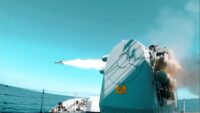(CNN)US President Donald Trump’s recent decisions to avoid military action against Iran in the face of tactical humiliation and strategic threats have been smart, subtle and ethically unimpeachable.
They’re also a gamble.
According to intelligence sources in the Middle East and the West, recent attacks on Saudi oil facilities were launched from Iranian soil. Iran has been blamed by the US, UK, France and Germany among others for being behind the cruise missile attacks; claims that the Houthi rebels in Yemen were responsible were dismissed as implausible.
But the outright allegation that the Iranians actually attacked Saudi Arabia from Iran — an act of war — has yet to be made in public, even though, according to the sources, intelligence officials have told politicians they are 100% certain their information is accurate.
The choice to hold such data back rests in the hope that, while it remains an open secret, there might be opportunities to dial down the dangers of war in the Gulf through diplomacy.
The extent of the urgency of achieving this was visible at the United Nations General Assembly last week where the French led efforts to lead the US and Iran towards talks.
Acknowledging a brazen act of violence against a sovereign nation would almost inevitably demand a violent response from that nation or her allies and put an end to diplomacy.
The gamble for Trump and other leaders is that a reluctance to act, in retaliation for what was a strategically effective attack on Saudi Arabia, may be seen in Tehran as weakness.
And that could result in a further escalation which, in the view of many sources in diplomacy and intelligence across the region, would most certainly trigger a conflict.
Attacking Iran would set off a complex war that simply could not be won by the West and its allies — and could easily be lost.
So far operations that the US has blamed on Iran against shipping in the Persian Gulf, Saudi Arabia’s oil industry and the downing of a US drone have been bloodless.
However much the Iranians deny their involvement, it seems their actions have been carefully calibrated to signal greater dangers to come — and Iran’s military reach.
Iran raising the stakes
Imagine, now, a retaliation — perhaps for another attack that (even accidentally) causes casualties.
A coalition led by the US would want to calibrate its response. Retaliation would have to be painful for the Iranians. But suggest a taste of worse to come.
Obvious targets would include the command and control structures of the Revolutionary Guard Corps (IRGC), air defenses around the country, weapons storage facilities and strategic communications hubs.
Elements of the nuclear program in Iran would be singled out, but they’re largely in a semi-mothballed state anyway.
The Iranians know this. Anyone planning to attack Iran knows that they know this, and so genuine targets would be hard to find.
Iran will have studied international air campaigns against Saddam Hussein’s Iraq, as well as those against Yugoslavia, Kosovo and Libya. The IRGC and the al Quds Force, its elite overseas wing, will have buried what matters most in mountains and set up decoys.
Iran has been raising the stakes steadily this year as economic sanctions imposed by the US bite hard into its economy. It has been angered by the apparent failure of the European Union and others to circumvent the US sanctions.
The US pulled out of the Joint Comprehensive Plan of Action (JCPOA), agreed with Iran in 2015, which limit its nuclear program in return for lifting sanctions last year.
Trump and other hawks, notably Israel’s Benjamin Netanyahu, argued that the deal was “terrible.”
Additionally, they say Iran had dangerously squandered the economic benefits it enjoyed on destabilizing operations, often through proxies in Syria and Yemen.
They also say that Iran has continued to back Hamas in Gaza, and Hezbollah in Lebanon, while developing missile technology that has now been used to spectacular effect.
The US, and privately a number of allies, now want the whole thing renegotiated to put an end to Iran’s missile program and its nuclear ambitions.
Iran says it is willing to resume talks but only if sanctions are lifted.
It is the danger of making war against Iran now that has so raised the specter of even greater horrors if a conflict is postponed.
But any attack on Iran could go from a show of force by the West, to all-out conflagration in moments.
READ MORE: Iran says ready to receive Saudi with open embrace
SOURCE: CNN WORLD NEWS






